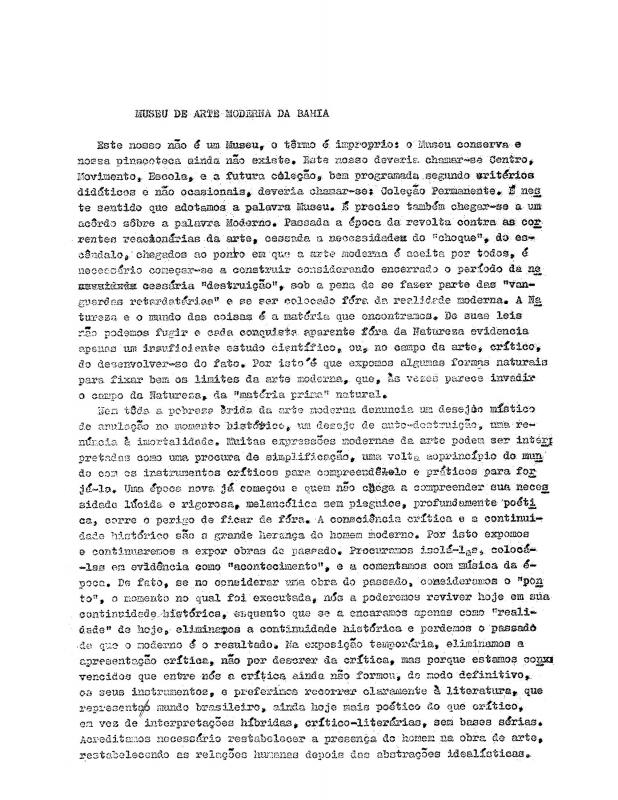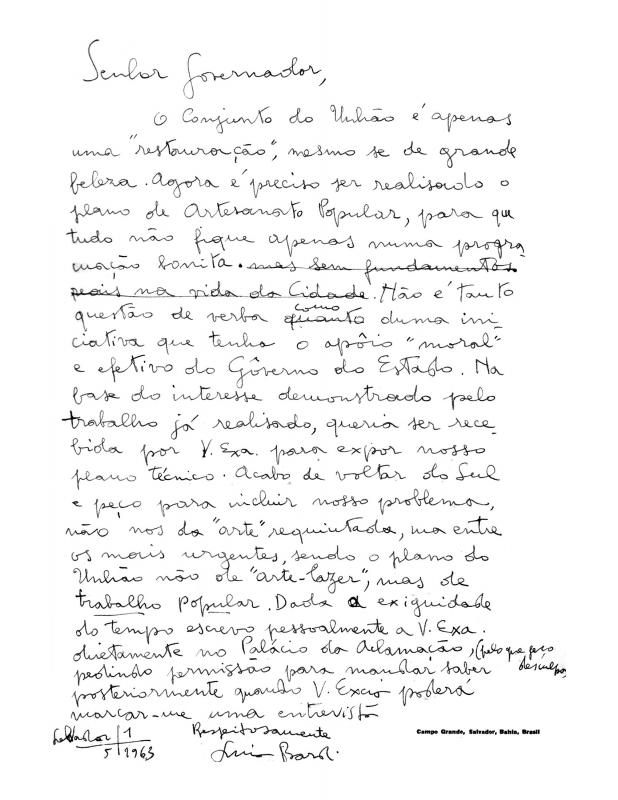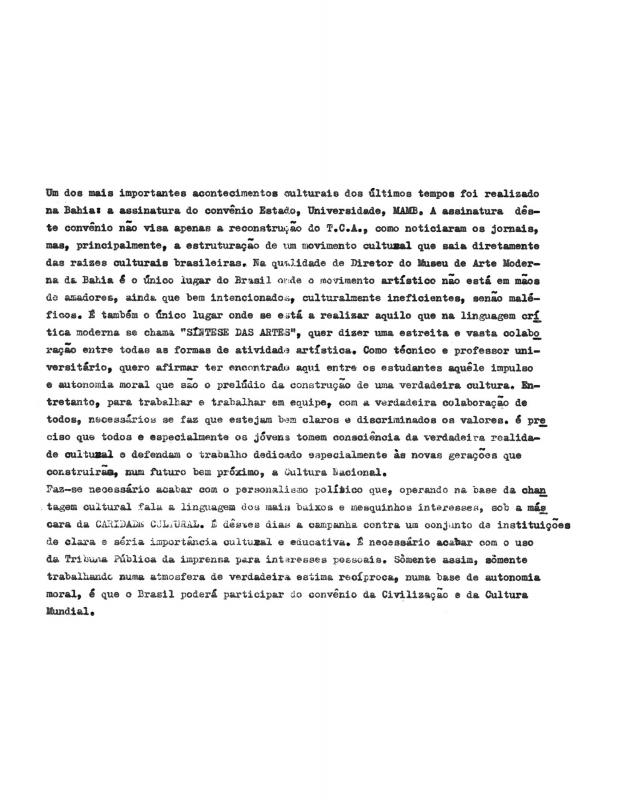This document sheds light on the critical perspective of Lina Bo Bardi (née Achillina Bo, 1914−92), an Italian architect who moved to Brazil after World War II and was the director of Museu de Arte Moderna da Bahia (MAMB) at the time of the interview. The discussion addresses the sociopolitical responsibility of the intellectual classes and of cultural institutions. From 1959 to 1964, Bo Bardi lived in Salvador, capital of the State of Bahia, where she directed MAMB and created the Museu de Arte Popular (MAP). A CIA-supported military coup ousted President João Goulart on April 1, 1964, ushering in a long period of military dictatorship (1964–85) in which the civil rights enjoyed by the population under democracy were suspended, specifically by means of violent censorship and an end to free expression for artists and intellectuals, among others. It was in this oppressive atmosphere that this interview took place in 1964. During those years, students were increasingly politically organized. They would later expand their efforts, working to build a unified national movement and supporting armed struggle in both rural and urban contexts. In this framework, Bo Bardi speaks of revolution, of the defense of democracy, and of student activism.
For related texts, see Lina Bo Bardi’s “O Museu de Arte Moderna da Bahia” [doc. no. 1110860]; on the implementation of the Plano de Artesanato Popular “[Letter] 1963 maio 1, Salvador, Bahia [to] Lomanto Júnior, Governo do Estado da Bahia” [doc. no. 1110865]; and “Um dos mais importantes acontecimentos culturais dos últimos tempos” [doc. no. 1110870].



